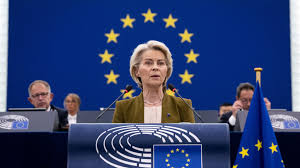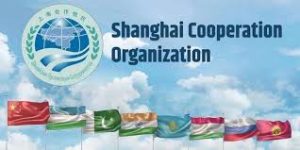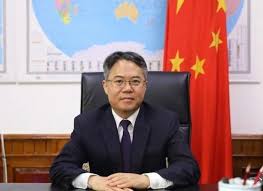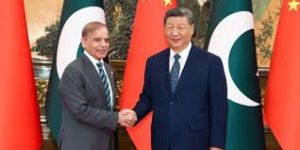How Bulgaria supplies Ukraine with weapons and ammunition

Sofia: Ammunition factories in Bulgaria play a crucial role for Ukraine’s rearmament. “The Bulgarian defense industry has specialized in the production of small arms, light weapons and ammunition of all calibers since Soviet times,” Bulgarian military expert and former Defense Minister Todor Tagarev told DW.
At the time of Russian President Vladimir Putin’s full-scale invasion of Ukraine, Bulgaria was able to quickly send Soviet-era military equipment to the Ukrainian army, which could handle it easily. the attacked country, which could be handled easily by the army of the former Soviet republic.
For a long time, Sofia kept these arms deliveries secret, fearing Russian sabotage. For the most part, equipment and ammunition were sent to Poland first, frequently via the country’s Rzeszow Airport, which is in the southeast and not far from the Ukrainian boder. It is also protected by NATO Patriot systems.
As Bulgaria’s defense minister from June 2023 until April 2024, Tagarev himself put together one of the most comprehensive military aid packages of Soviet-era arms for Ukraine — in the greatest confidentiality.
But those days are over, Tagarev said. Now, Bulgaria is slated to produce a sizeable share of the 2 million artillery shells the EU has promised Ukraine, and the government is talking about it openly. He said that in future the EU will pay for the supplies. “Bulgaria is making a significant contribution, and that might be further increased,” Tagarev said.
Only at the end of August, German arms manufacturer Rheinmetall announced it was setting up a new ammunition plant in Bulgaria and investing €1 billion ($1.17 billion). The project will also partially be financed through EU loans and is to be developed in collaboration with Bulgarian state-owned arms manufacturer VMZ Sopot. The joint venture is to produce gunpowder and NATO-standard 155-mm (approx. 6 inch) artillery shells. Rheinmetall CEO Armin Papperger already discussed further investments in Europe in February when he spoke to DW on the sidelines of the Munich Security Conference.
After producing Soviet-standard ammunition for Ukraine, this is a critical shift for Bulgaria’s arms industry, Bulgarian security expert Velizar Shalamanov told DW.
“We are developing a new market,” he said. “And I think investment from Rheinmetall is recognition of the capacity and quality of our munition production companies,” added Shalamanov, who is also a director at the pro-European NGO, the Atlantic Club of Bulgaria. He said that he expected ammunition deliveries to Ukraine to become easier in the future: “It will be more direct. Especially with the involvement of Rheinmetall logistics, it could be much easier to go via Romania. And — why not? — even through the western Black Sea, which is secured, at least in our territorial waters.”
However, as they help to establish the “steel porcupine”called for by the EU small arms manufacturers in Ukraine also hope to get funds from Brussels. “In 2025, the capacity of Ukraine’s defense industry is estimated at $30–35 billion (€25.5–29.8 billion), but the Ukrainian state can only award contracts for half of this amount at most,” Ihor Fedirko, the executive director of the Ukrainian Council of Arms Manufacturers, told DW. The council represents 800 private arms manufacturers, “all of which are looking for investors”, Fedirko said, adding that European donors had a wide range of options for partnerships.
He said that he would be “very grateful for an extension of existing financial programs and additional opportunities for purchasing Ukrainian arms domestically” — with European money. “This would lower the logistical costs considerably,” and ammunition would reach Ukrainian soldiers on the front line quicker.
He said he realized, however, that potential Western donors “need reliable mechanisms to hedge military risks.” Thus, as long as Ukraine’s air defense is not capable of permanently protecting smaller firms in the country from Russian air strikes, arms manufacturers operating outside Ukraine — such as those in Bulgaria — are more likely to benefit from European investment.
And this will probably be the case for a long time to come. “Unfortunately, I do not see an end to the war in the near future,” Tagarev told DW. “There are no conditions even for a ceasefire, let alone peace,” he said. Not even after the recent Trump-Putin meeting in Alaska nor the Washington summit where US President Donald Trump hosted European leaders, and the “coalition of the willing” meeting in Paris last week of some 30 Western leaders that support Ukraine.
“The war will continue. Putin has not reduced his ambition to have practically full control, territorial or political or combined, over Ukraine,” Tagarev said, adding that Ukraine would not relent to Russian pressure. “With the support of Europe and, to a lesser extent, the United States, Ukraine will continue to resist.”





